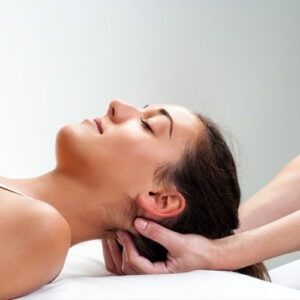I’m not stressed!!!
Or are you……find out
- how stress hides in your body?
- what does stress feel like?
- how it impacts your health?
- what can you do to reduce stress and improve your health?
Are you struggling with stress??
As osteopaths we always ask about stress and how you are feeling generally. Many patients say ‘oh your know, just normal life busy, but I’m not stressed’
Then we put or hands on their muscles, observe the way they move and breathe and the body tells a different story (if you’ve not read ‘The Body Keeps the Score, Bessel Van der Kolk, it’s a fascinating read).
Many people do recognise that they are stressed and identify with the tell-tale signs of stress:
- Irritability and snapping at family and friends
- Overwhelm
- Worrying thoughts
- Difficulty sleeping and concentrating
- Comfort eating or losing your appetite
But stress doesn’t just affect your mood it can hide in your body too even if emotionally you feel ‘fine’ (I’m fine, I’m fine – just keep telling yourself that…)
Where does stress hide?
Stress can look like other things:
- Headaches (can be related to jaw clenching / teeth grinding too)
- Muscle pain and tension (we’ll explain why ….)
- Increased intensity of pain
- Chest pain
Everyone experiences stress differently – for some people it might be more emotional, for others more physical or both.
So how does stress affect our bodies and muscles?

Our stress is a natural response to challenging or threatening situations. It helps you get that work done by a certain deadline or take swift action to avoid a collision on the motorway. But chronic or longer-term stress is unhelpful, both physically and emotionally. It has been linked with multiple different diseases.
When you are stressed over a longer period of time changes start to happen in your body:
- Muscles tension and stiffness
- Jaw clenching / teeth grinding: This may be felt directly as facial or jaw pain or indirectly as headaches
- Altered posture: You may stoop, hunch your shoulders, hang your head, move more slowly and less energetically
- Blood flow: Constriction of blood vessels caused by stress affects the blood supply to muscles
- Back pain: Stress is linked with increased risk of chronic low back pain
- Breathing: Changes in the way you breathe – taking more shallow breaths or even breath holding. This impacts on the movement of your ribs and upper back, especially
- Inflammation: Stress has been linked with a heightened inflammatory response (inflammation can cause pain)
- Psychological effects: Stress can lead to an increase in pain intensity (pain perception).
These effects of stress may all be compounded by poor sleep – as a result of pain or from the mental effects of stress or both.
Poor sleep is linked with further inflammation and increased sensitivity to pain.
Being in pain or feeling stiff can make you more irritable and less able to exercise, which is detrimental to stress management.
If stress is linked to a busy lifestyle, then often being time poor, means self-care suffers too. You don’t make time for doing the activities that you enjoy, reading, spending time with friends – all the things that might help alleviate stress!
It’s a vicious circle, that you need to break.
So how do you break the cycle of stress and improve your health?
Common stress management techniques include:
- Mindfulness / meditation
- Talking to friends / family or a professional
- Breathing exercises
- Mental health apps and podcasts
- Exercises
- A good diet
- Getting a good night’s sleep
(see resources section at the end useful links)
But have you thought about osteopathy for stress?
Osteopathy for stress
‘This couldn’t have happened at a worse time!! I have a big project on at work, my Mum is unwell and I am traveling to support her and my son is in the middle of his GCSEs. I don’t have time for my back to go right now’
This is not an uncommon scenario we would see in clinic! But when you think about the effects stress has on your body it obvious to see why your ‘ back goes’ or your ‘neck locks’ just when it’s most inconvenient!!
The build-up of muscle tension, poor sleep, poor self-care and inflammation – is a perfect storm.
Seeing your osteopath for a check up when you know you’re approaching a busy patch or you know you’re under a lot of pressure is a good way to avoid these sudden acute flare ups of pain.

If you have been stressed for some time, then osteopathy can help with:
- reduced tension, pain and stiffness
- improved sleep (as your in less pain and feel physically more relaxed),
- improved ability to move and exercise comfortably
- increased blood flow you your muscles
- reduced inflammation
As osteopaths we look at you holistically – you are more than just a bunch of muscles, bones and nerves to us. You are a whole person and we support all aspects of your health and wellbeing.
We can help with the physical as well as advising on exercise that is right for you, your ability and lifestyle, relaxation techniques, mindfulness apps, referrals onto the GP or for talking therapies if needed.
We’re good listeners too! Your osteopath is always a safe, confidential, non-judgemental space to offload some of your worries onto that you maybe don’t want to put on friends and family.
There are so many ways that osteopathy can help to break the cycle of stress.
We’ve got you!
Whether you’re in pain or not, when it comes to stress, osteopathy has you covered.
Book in to see us and let’s see how we can tailor a plan to manage your stress.

Find out more about osteopathy for stress:
What osteopaths can treat
Resources for dealing with stress
Get help with stress – NHS (www.nhs.uk)
Stress – Every Mind Matters – NHS (www.nhs.uk)
Useful contacts – stress – Mind
National charity helping people with Anxiety – Anxiety UK
Apps:
Best mindfulness apps to keep calm during a crisis | The Independent
Meditation and Sleep Made Simple – Headspace
App | Happy Place (happyplaceofficial.co.uk)
Images to use as featured image for blog and in body of text with text wrapped or aligned to the side.
